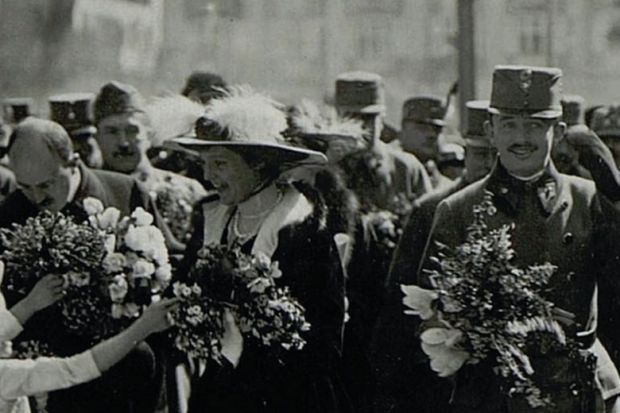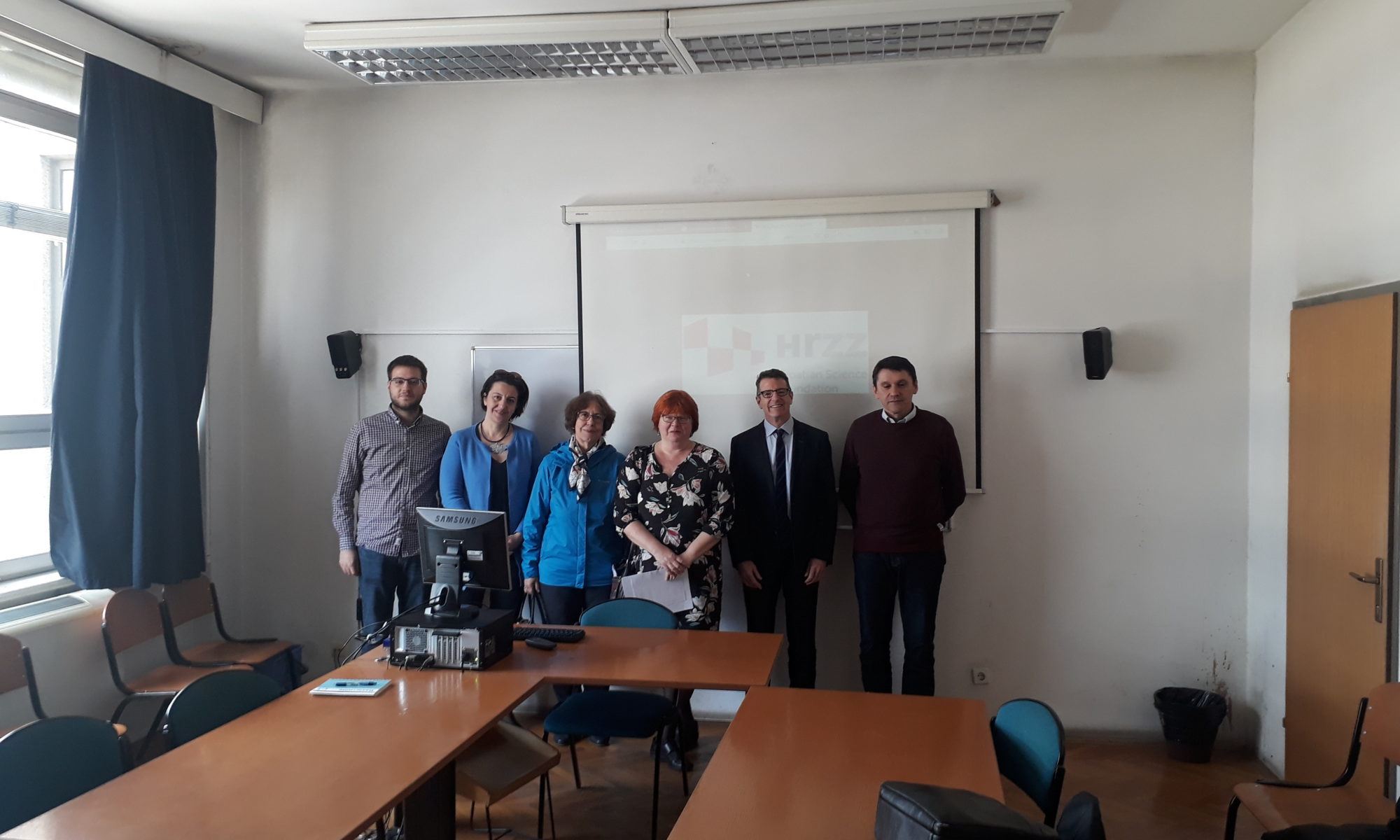Project meeting with the consultant Pieter M. Judson held at the Faculty of Humanities and Social Sciences in Zagreb on 15 April 2019
Each member shortly presented his/her activities during the second project year. Since Željko Dugac and Miha Preinfalk were not able to attend the meeting, they had beforehand presented their reports to the consultant in writing.
Iskra Iveljić delivered a paper „Spannungsverhältnis zwischen Nationalismus und Multikulturalismus in Banalkroatien im 19. Jahrhundert“ and wrote a text with the same title to be published in the collection of essays. She delivered two papers on Croatian-Hungarian Compromise (Vienna, Zagreb). She researched in Haus-, Hof- und Staatsarchiv in Vienna and wrote an article on nobility in Croatia and Slavonia after 1918. She also held several public lectures on the transition of the Croatian nobility after 1918.
Žarko Lazarević researched in Arhiv Jugoslavije in Belgrade and established two databases of articles on financial data. He also wrote a text on the Slovenian economic elite, namely the Tönnies family.
Ida Ograjšek Gorenjak researched in the archive and library in Sarajevo. She delivered a paper at a conference in Warsaw, „Little Alliance with Big Ambitions: Little Entente of Women“ and wrote a text in English to be published in the conference proceedings.
Branimir Janković presented a paper at a conference in Amsterdam, “Caught in Transition: Historians between the Habsburg Empire and the New Yugoslav State” and wrote a text on historians in transition.
Nikola Tomašegović presented a paper at a conference in Amsterdam „Politics and Literature of Fin-de-Siecle Yugoslavism: the Croatian Youth Movement“. He wrote a text on the political ideas of the Progressive Youth in Croatia and published a text on the International Statistical Congress (1853-1876).
Božena Vranješ-Šoljan carried out research in Staatsarchiv and Haus-, Hof- und Staatsarchiv in Vienna, as well as the Croatian State Archives in Zagreb. She wrote a text on the Croatian county prefects (župani) in transition from the Habsburg Monarchy to the Yugoslav State.
Mark Cornwall delivered papers at conferences in Belfast and London on the transition of Croatian lawyers to the Yugoslav State. He also wrote a text „Lawyers and their transition out of the Habsburg Empire: A case study of Croatia“.
Željko Dugac researched at the University archive in Vienna and Institute for the history of medicine Josephinum, University of Vienna. He wrote two texts: “Physicians as collectors of folk medicine records in Bosnia and Herzegovina at the end of the 19th and in the early 20th century” and “Cooperation in the Field of Public Health and Medicine: Instances of Expert and Knowledge Mobility between Vienna, Zagreb and the Far East”. He delivered three papers „Professionalization and Institutionalization of the History of Medicine in Croatia”, „Rockefeller Foundation, Health Education and Mraclin“, „Transfers of Scientific Ideas and Experiences Austria – Croatia – China: Dr. Julius Tandler and Dr. Andrija Štampar“.
Miha Preinfalk continued his research on the nobility in Slovenia until 1918, and expanded his research into the period after the end of the First World War. He presented the results of the research at two conferences. The first entitled “Milestones and History. A Great History through the Eyes of a Small Man” organized by the Association of Historical Societies in September 2018, presented the fate of some noblemen who lived through the Second World War in Slovenia. Most of them were exiled and expropriated after the war, some individuals lost their lives, only a handful remained, mostly older individuals, women and children. The second conference entitled “Slovenian breakup in 1918” was held in October 2018 and was organized by the Slovenska matica. Miha Preinfalk presented what the year 1918 brought to the nobility in Slovenia, and compared their fate with the fate of other members of Habsburg nobility, found in various newly born nation-states.
The biggest problem in the research of nobility in Slovenia in the 20th century is the lack of primary sources. The nobility that remained in Slovenia after 1918 withdrew into the background, into the private sphere, and was therefore almost never seen in the public, and the sources that reveal their private life are extremely rare and scarce. It is therefore necessary to make comparisons with other newly born countries, which is not entirely appropriate, given that each of these countries had a specific political and social situation.
Iskra Iveljić, Željko Dugac, Branimir Janković and Ida Ograjšek Gorenjak delivered lectures at the Doctoral Study of Modern and Contemporary History in the European Context of the Department of History of the Faculty of Philosophy within the elective course „The Transition of Croatian Elites from the Habsburg Monarchy to the Yugoslav State“, led by of Iskra Iveljić, in February 2019.
In the following discussion with the consultant guidelines for further research and activities were defined.
Project members should conclude their research, articulate final results and, when possible, draw comparisons with other countries of the region. Major goals of the final project year should encompass dissemination, the most important being the organisation of the international conference in Zagreb Transitions out of Empire in Central and Southeastern Europe. Finally, extended summary of research results in English will be available on the project website.


